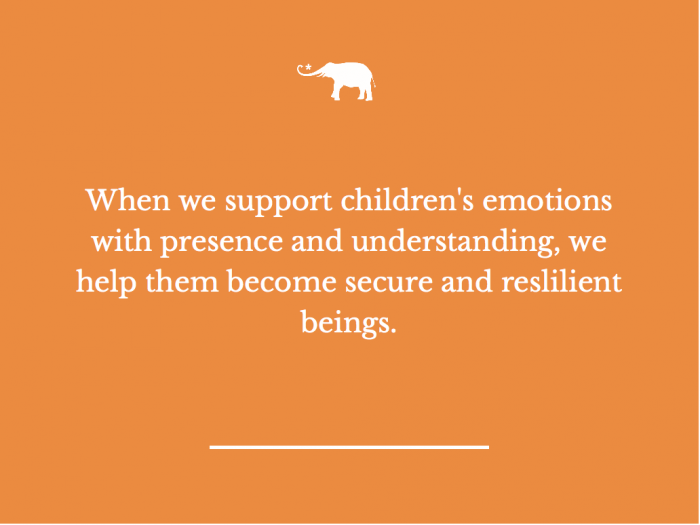There’s no denying that this school year has been a rollercoaster ride for everyone involved. As we wind down from this wild and crazy year, parents and kids alike are envisioning what summer is going to be like. Your summer may be filled with adventures and fun, kicking back by the pool and watching the kids play. Or a more stressful future awaits of sorting out schedules and childcare as you navigate how to work when kids are home (which you’ve probably improved at a lot with all the practice from 2020), what coverage you have so that life can function even when school is not. In our family, it’s a combination of both.
Either way, one thing that often gets overlooked is the huge transition that children are about to face. While kids sometimes complain about school, if there’s one thing the pandemic has taught us is that school is an anchor in children’s lives. When school ends, it can be disorienting for children. The ending of a school year is a time where kids are saying good-bye to many things that have been consistent and dependable in their lives. Their teachers, daily contact with friends, classmates who won’t be coming back, a consistent schedule they rely on.
As a mom, a child psychotherapist and parenting coach, I have seen that there are a few times a year to anticipate that children’s stress responses can really flare up: at the start of the school year, at holiday times (transitions to/from winter break) and again at the end of the school year. Children who are sensitive to transitions, in particular, can struggle with these big changes and need some extra support to help them see it through with more ease. Not to fret, however, there are things we can do to help this go more smoothly and make this switch to summer more conscious and easy.
Here are 5 tips for guiding kids through the end-of-school transition:
- Connect and communicate
Often we are so focused on summer break that we neglect to honor the ending that precedes it. Check in with your kids and ask them, “How are you feeling as we wind down the school year? Sometimes kids feel both excited for summer and a break from school, and also sad about things changing and saying good-bye. I’d love to hear how you’re feeling about it.”
Open the door for children to share the mixed feelings they’re having with you. Stay curious and make it a priority to listen, rather than talk. Kids do open up when we give them the space to do so—sometimes it’s just a matter of learning what works best for your child. - Recognize signs of grief
Grief isn’t just for deaths and major losses. Children grieve little things all the time. Think of the times your child was screaming and crying because something didn’t go their way… This is a form of grief. When your child is grieving the end of the school year, hold space for their emotions. Recognize that children go through the phases of grief as outlined by Elizabeth Kubler Ross in their processing, but not in a linear way. Expect some ups and downs for kids who are feeling this transition more strongly. - Help kids stay grounded through play
Play outdoors, dig in the dirt, go for walks and bike rides, eat healthy and get rest. Play with kids regularly (I recommend at least 20 minutes of uninterrupted one on one play per child per day, when possible. Modify when life is crazy and you need to.) Play is how children process their feelings, release energy, communicate and learn valuable life skills. It gives us as parents an opportunity to sink into our childrens’ world and it’s a beautiful way to connect. - Name it to tame it
As psychiatrist, Daniel Siegel, talks about in his book The Whole Brain Child, when we help the child by naming the feelings they’re experiencing, it actually calms their nervous system and helps them process their big feelings faster. Use this technique to let children know you understand. You could say, “I know the school year is ending and your best friend is going to a different school next year. That must feel sad.” When our kids hear that we get it, they’ll feel met and seen. When children feel met, seen and understood, they develop emotional resilience and security. - Create structure within the flow
Many of us look back at childhood and some of our favorite memories were from summer adventures. Have fun and enjoy this time thoroughly! Just remember that, for sensitive kids, structure and predictability are important ways to help them feel regulated. So when you’re setting up your summer schedule, consider how to create predictability within the free-flowing vibe of summer fun. Perhaps it’s putting your adventures on a calendar for them or writeing out the day’s activities in the morning so they know what to expect.
As a child therapist and parenting coach, I so often hear about kids unraveling at the transition points into and out of school. But it doesn’t have to be that way! Transitions give us an opportunity to help kids process their emotions in safe and healthy ways. Follow the tips I’ve outlined above, and set yourself up for a conscious, smooth shift into the summer flow that will be fun for everyone!

 Share on bsky
Share on bsky







Read 2 comments and reply